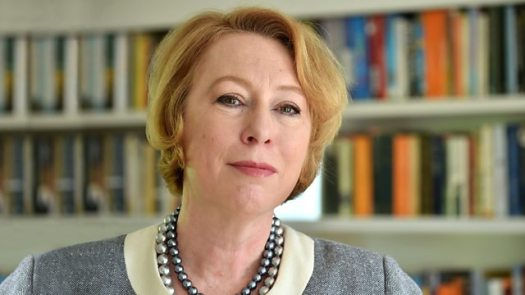Three leadership lessons CEOs can learn from Gordon Brown’s autobiography, My Life, Our Times
- Ciaran Fenton
- Nov 27, 2017
- 3 min read

If you are a CEO or an aspiring leader wishing to improve your leadership skills, you will not waste time reading the recently published autobiography, My Life, Our Times, by Gordon Brown, former United Kingdom Prime Minister and Chancellor, if only to learn what not to do as much as what to do.
I attended the book launch chaired by Jonathan Freedland, at Westminster Hall with mixed feelings. I had not warmed to him when he was a leader but I admired his conviction. I left with the reverse view: I liked him more and was surprised to find myself shocked by his values.
The audience was partisan and clapped throughout. I didn’t, but I did find myself laughing out loud at his stories, his mirth and surprisingly engaging manner. It’s a shame we didn’t see more of that when he was in power. This point links to the first of three lessons.
He writes that he couldn’t do “touchy-feely” politics and never mastered the ability “to sculpt my public image in 140 characters”. Initially I misinterpreted this as an expression of regret and wishfully thought the statement contained in it an implicit warning to other would-be leaders not to repeat this error.
But it becomes clear that he believed that “what mattered was not what I said about myself, but what our government could do for our country”. Taken at face value this suggests a humility that places government or the organisation above its leader.
But it did matter what he said about himself because people buy people first and need to see the spirit of their leaders revealed if they are to follow them. I’ve never liked the phrase “touchy-feely”. In two words it seems to diminish the courage it takes to be honest.
Once I facilitated a leadership conference, having won the pitch to do so against a competing facilitator, on the basis of my manifest belief in clarity of feelings only to find that on the first day of the conference the boss warned me off making the event too “touch-feely”.
I had sympathy with his fear but wished he had had the courage to overcome it. I ignored his warning and proceeded to “do” touch-feely anyway and he was very happy with the outcome.
What concerned me about Mr Brown’s view was that he wasn’t regretting his attitude but regretting the fact that it didn’t work. The lesson for you as a leader, whether you like it or not, is that clear and frequent communication about you, your values and plans are not optional.
The second lesson is around his views about what he did and didn’t know at the time of the decision to go to war in Iraq. “Beyond questions of financing” he writes, “The Treasury had little involvement”. He’s saying he wasn’t in “the room”. When he said this to Jonathan Freedland in the Q&A session I was so shocked I could no longer laugh at his jokes. Why wasn’t he in the room? Who stopped him? Why didn’t he force his way in?
This is unacceptable behaviour. The Chilcot Report rightly called out the “sofa style” governance errors of the Blair decision-making process. That Mr Brown wasn’t on the sofa was as much his abrogation of corporate governance as Mr Blair’s.
The third lesson is one that acknowledges Mr Brown’s clear sense of purpose on matters he cared about. He cared about the poor and acted on their behalf. His belief in the importance of a health service “free at the point of delivery” was laudably unshakable, if weak in execution.
And few would argue that his intellectual rigor in dealing with the financial crisis in 2009, probably, saved the world from financial meltdown.
The lesson here is to have clarity of purpose. He rightly received applause in the hall for this.
That said these successes don’t compensate, for me, his failure to confront himself, as we all have to do.
David Hare, in his review of the book in The Guardian, finds this aspect of Mr Brown’s character “endearing”: “Brown has in abundance what the rest of us have to some degree – a haunting ignorance of our own place in the picture. The fact that, to judge by this book, he remains unaware of this failing makes it all the most affecting”.
I disagree. It’s not endearing. It’s shocking and dangerous. Lack of self-knowledge is as human as it is ubiquitous. But leaders need to work hard at confronting their worst behaviour because it conceals their greatest asset: unique hidden potential.
Had Mr Brown been supported in accessing his inner “touchy-feely-thing” (sic) he might have realised that vision, conviction and intellectual rigor are not enough to lead any endeavor, successfully. He would have connected with his and our vulnerability and found a way to communicate in his brilliant, funny and engaging style the plans which people could have executed, not just ideas to cheer. And, had he done so, wouldn’t we all now be safer?





Comments